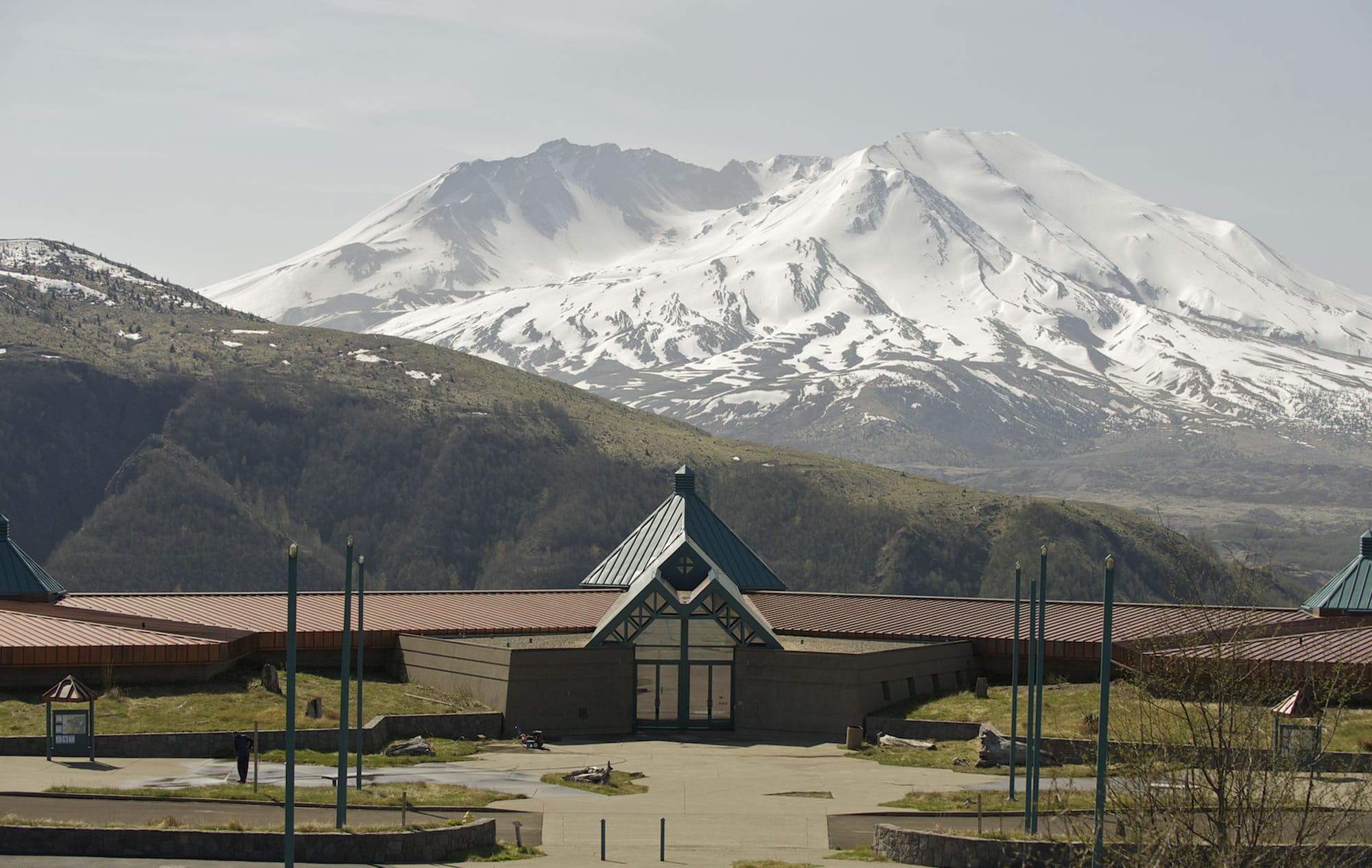Improvements have put Mount St. Helens in better position to serve visitors and boost surrounding communities, U.S. Forest Service leaders said Monday.
In making its “state of the monument” presentation, the Forest Service also received several ringing endorsements from local partners. The update comes as forest officials work to revitalize the Mount St. Helens area under the close watch of many advocates.
Among the audience members was an influential voice in that process: Rep. Jaime Herrera Beutler, R-Camas. “The reason we’re here is because it’s a treasure to our region,” she said at the start of the gathering.
The management of Mount St. Helens has come under the microscope in recent years. In 2009, a broad citizen advisory committee recommended keeping the landmark — now a national volcanic monument — under the watch of the U.S. Forest Service. Some advocate making Mount St. Helens a national park, citing funding uncertainty and instability the monument experiences now.
The 2009 recommendation came with a list of improvements the group wanted to see happen at the mountain and its facilities. The Forest Service has also used a recent strategic investment plan as part of its blueprint. Monday’s meeting was the second such gathering in as many years to update stakeholders on what progress has been made, and what’s on the horizon.
Monument Manager Tom Mulder spent the evening outlining changes and improvements in each section of the monument, which covers 110,000 acres within the Gifford Pinchot National Forest. Mulder noted numerous facility upgrades, many
at the mountain’s flagship Johnston Ridge Observatory. There, a new outdoor amphitheater greeted visitors this year, along with new exhibits, updated technology and upgrades to the building itself.
At Coldwater Ridge, the formerly shuttered visitors center reopened this year as the Mount St. Helens Science and Learning Center at Coldwater — a vision that continues to evolve, Mulder said. The building began by hosting only special events and research, but now maintains regular public visiting hours.
Mulder also noted improvements on the area’s many trails and new recreation opportunities that include kayaking at Coldwater Lake, mountain biking and other activities as the monument looks to solidify its new direction.
“I’m really comfortable with the trajectory,” Mulder said.
Push for a national park
Sean Smith, policy director with the National Parks Conservation Association in Seattle, said he believes Mount St. Helens can — and should — do better. Smith’s group has pushed for national park status for the mountain. Such a change would put the area under the management of the U.S. National Park Service, provide more stable funding, an elevated profile and better long-term health, Smith said.
The fact that the debate over Mount St. Helens’ management continues says something about its current success, Smith said. Recent progress is welcome, he said, but it’s worth asking if those gains have come as quickly and effectively as possible. Smith doesn’t expect suggestions of national park status to quell anytime soon.
“It’s always going to be an option,” Smith said. “I would say it’s eventually going to happen.”
Challenges ahead
After Monday’s presentation, Mulder acknowledged some challenges the monument still faces. Visitor numbers at Johnston Ridge were slightly down this year, he said, while Coldwater remains a work in progress. Overall visitation to Mount St. Helens was roughly flat in 2012, Mulder said.
And money has been “slippery,” Mulder said — that is, driven in large part by grants and one-time sources that may not always be there. That’s what fueled a lot of recent facility upgrades, he said.
Mulder and others stressed there’s still plenty of work to be done, but the Forest Service enjoys the backing of many local partners. Skamania County Commissioner Paul Pearce said Monday he’s “astounded” at the progress that’s been made in just a few short years. Discussion about Mount St. Helens should focus more on the positive strides that will carry the region to a better economic future, he said.
Cowlitz County Commissioner Jim Misner, like others, stressed collaboration among local partners as key to maximizing the potential of a Northwest icon.




